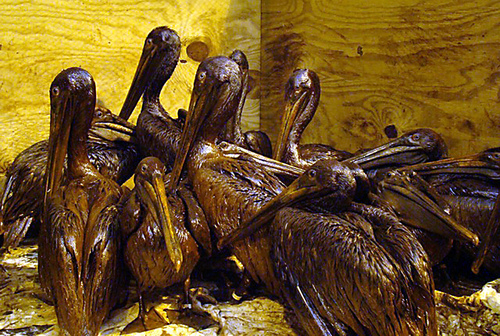No one really knows how bad the oil spill is or what the short term or long-term effects are going to be, but we all know it’s an environmental catastrophe like we’ve never known. Could it really create a dead zone in the gulf?
James Cameron expressed some of what everyone was feeling when he said “I was watching with growing horror thinking, ‘Those morons don’t know what they’re doing,’” 6.3.10 blogs.wsj.com. Procedures over the last 48-72 hours have seen some success in stopping the flow of oil but in the words of BP officials “it’s going to be a long, long process.” In the meantime we will see the destruction of billions of dollars of businesses and livelihoods and priceless elements of mother nature—sea and water foul life, marsh and wetlands, gulf fishing industry, seafood business, 5 state shoreline, the energy sector, tourism, health of cleanup workers, the economy in general will take a hit, and BP shareholders (I know, but still).
Adam Rix, of Watermark Initiative, cautions that we have acted (drilled) without proper planning and that we are vastly under-educated about our marine environment. “The Deepwater Horizon disaster should be a global wake-up call to immediately understand our oceans. Merely canceling off shore drilling in North American waters is insufficient because other countries will fill the gap. Additional spills will occur, perhaps with even greater impact on marine resources. If we attempt to disperse-and-forget, then our next term will be “ocean kill.”
Panoramix View: The gulf oil spill is going to impact us in ways we cannot yet predict. The U.S. and the world are heartsick and angry. The spill continues to capture the public’s attention more than any other news story (pewresearch.org 5.19.10) and by association focuses on our responsibility to and impact on the environment. This catastrophic event is the inflection point for many regulatory changes but also for products and services changes in the years to come.

